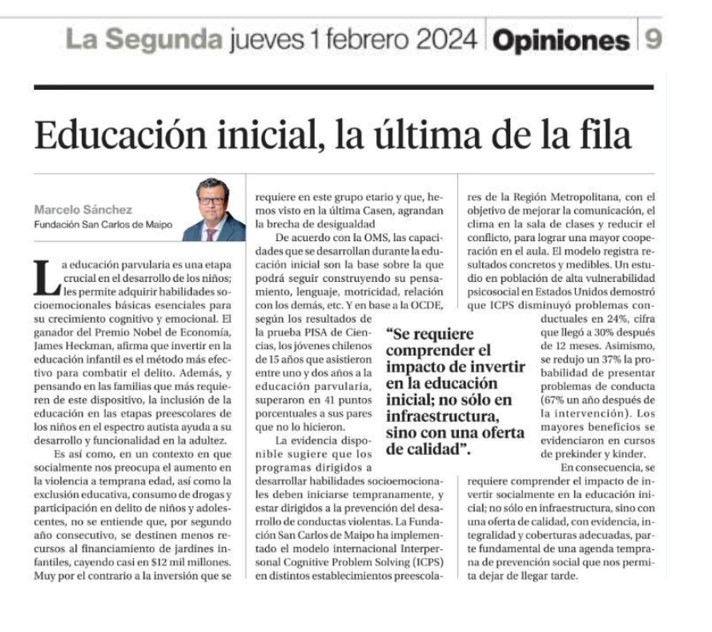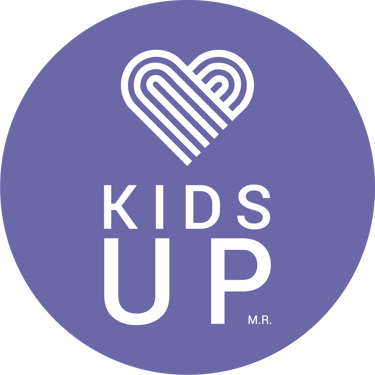Initial education, last in line
Thus, in a context in which we are socially concerned about the increase in violence at an early age, as well as educational exclusion, drug consumption and participation in crime among children and adolescents, it is not understood that, for the second consecutive year, allocate fewer resources to financing kindergartens, falling by almost US $12 Million. Quite the opposite of the investment that is required in this age group and that, we have seen in the last Casen, widens the inequality gap
Marcelo Sánchez Ahumada- La Segunda
2/1/20242 min read


Early childhood education is a crucial stage in children's development; It allows them to acquire basic socio-emotional skills essential for their cognitive and emotional growth. Nobel Prize winner in Economics, James Heckman, affirms that investing in early childhood education is the most effective method to combat crime. Furthermore, and thinking about the families that most require this device, the inclusion of education in the preschool stages of children on the autism spectrum helps their development and functionality in adulthood.
Thus, in a context in which we are socially concerned about the increase in violence at an early age, as well as educational exclusion, drug consumption and participation in crime among children and adolescents, it is not understood that, for the second consecutive year, allocate fewer resources to financing kindergartens, falling by almost US $12 million. Quite the opposite of the investment that is required in this age group and that, we have seen in the last Casen, widens the inequality gap
According to the WHO, the capabilities that are developed during initial education are the basis on which you can continue building your thinking, language, motor skills, relationships with others, etc. And based on the OECD, according to the results of the PISA Science test, 15-year-old Chilean youth who attended preschool education between one and two years outperformed their peers who did not do so by 41 percentage points.
The available evidence suggests that programs aimed at developing social-emotional skills should start early, and be aimed at preventing the development of violent behavior. The San Carlos de Maipo Foundation has implemented the international Interpersonal Cognitive Problem Solving (ICPS) model in different preschool establishments in the Metropolitan Region, with the aim of improving communication, the climate in the classroom and reducing conflict, to achieve greater cooperation in the classroom. The model records concrete and measurable results. A study in a population with high psychosocial vulnerability in the United States showed that ICPS reduced behavioral problems by 24%, a figure that reached 30% after 12 months. Likewise, the probability of presenting behavioral problems was reduced by 37% (67% one year after the intervention). The greatest benefits were evident in prekindergarten and kindergarten courses.
Consequently, it is necessary to understand the impact of socially investing in initial education; not only in infrastructure, but with a quality offer, with evidence, comprehensiveness and adequate coverage, a fundamental part of an early social prevention agenda that allows us to stop arriving late.
